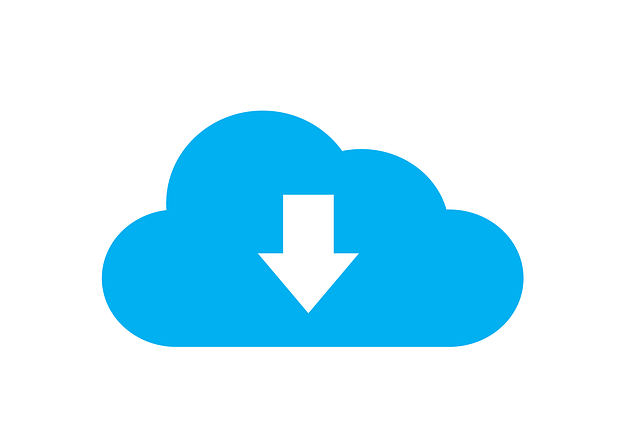Protecting data against loss or ransomware requires more than traditional backups. Cloud data backup offers scalable, secure storage accessible anytime, ensuring continuous protection and rapid recovery. Understanding how it works and choosing the right provider can safeguard critical systems while reducing costs and complexity. This guide reveals practical insights to help you implement reliable cloud backups tailored to your needs.
Understanding Cloud Data Backup, Its Advantages, and Choosing the Right Provider
When discussing modern data safety, Secure Cloud Backup & Data Storage Solutions stands out by redefining how digital information is protected and managed. In essence, cloud data backup refers to sending copies of files, folders, databases, or even entire systems to remote, secure servers via the internet. This differs sharply from traditional backup, which typically means saving files onto physical drives or local servers—methods that remain vulnerable to on-site disasters and hardware failure.
Additional reading : What role does cybersecurity education play in UK schools?
Cloud backup offers several compelling benefits:
- Flexible storage scaling enables seamless expansion as data grows, eliminating the unpredictable costs and logistical hassles associated with buying new hardware.
- Offsite backup enhances resilience during fires, floods, or theft, safeguarding vital information even if local infrastructure is compromised.
- Automated workflow reduces human error—scheduled, incremental, or continuous backups ensure nothing critical is forgotten.
- Compliance features simplify regulatory data retention requirements for sectors with privacy and security mandates, helping organizations avoid legal headaches.
For those evaluating providers, the landscape is diverse. Backblaze suits enterprises with high-speed, bulk storage needs, featuring immutable backups, transparent costs, and disaster readiness—ideal for data-intensive sectors and those requiring robust ransomware protection. IDrive impresses with broad device support, feature-rich tools like granular recovery and hybrid backup, as well as budget flexibility for home, small business, or MSPs—plus strong accolades for usability and reliability.
Also read : Transform your online presence with website design london
Dropbox excels in simple, secure backup with automatic device syncing, file versioning, and easy recovery—an excellent choice for individuals and organizations needing collaborative features alongside robust security. Each of these providers supports encrypted backups—with options for end-to-end encryption, version history, and secure file access—to address modern security threats and compliance pressures while offering flexible subscription models suited to both casual and enterprise users.
Selecting a provider comes down to identifying the most critical needs: whether it’s ironclad security for sensitive data, advanced compliance tools, cost-efficiency, or streamlined file sharing and recovery. With the right choice, cloud backup becomes a seamless part of an organization’s data protection strategy, futureproofing valuable information against both common mishaps and major disasters.
How Cloud Data Backup Works and Industry-Trusted Features
Core mechanisms: automated backup scheduling, incremental and continuous data protection
Backup automation tools enable businesses to run automated backup scheduling, removing manual tasks from daily routines. With these tools, backups can be set at regular intervals, ensuring no data is left unprotected. Incremental and continuous data protection means only new or changed information is updated each cycle, which speeds up the process and reduces storage needs. Especially for backup for virtual machines and SaaS apps, this method provides real-time recovery points and enhances backup efficiency.
Security measures: encryption, immutable backups, and ransomware protection
Encrypted backup services safeguard data both in transit and at rest. Top cloud backup providers use strong encryption standards, shielding sensitive files against exposure. Immune to tampering, immutable backups keep backup versions unchangeable, a must-have for disaster recovery planning. This ensures data can be restored even after ransomware attacks.
Support for diverse environments: servers, VMs, SaaS apps, remote endpoints, and multi-device compatibility
Modern platforms support backup for remote workers, servers, VMs, and cloud backup for Microsoft 365, guaranteeing protection across devices and endpoints. This versatility simplifies disaster recovery planning and compliance in fast-moving business environments.
Best Practices, Implementation Steps, and Real-World Examples
Setting up and validating cloud backup: step-by-step implementation
Start with a backup and restore from cloud storage workflow. Use an automated tool to select all critical files. Schedule regular backups, choosing cloud backup for small businesses if needed for budget flexibility. After backup, test recovery by restoring backups from cloud storage on a sample device, verifying backup integrity. Continuously monitor backup data retention policies to ensure files are properly retained and deleted as needed.
Establishing data retention and compliance policies for regulated industries
Define backup data retention policies according to industry standards. Backup compliance audits are required in sectors like healthcare and finance, so set retention rules that meet regulations, such as GDPR or HIPAA. Use backup cost optimization tips to prevent overspending—store less critical files on cost-effective tiers, reserving premium storage for sensitive data. Routine testing and validation confirm adherence to policies.
Case studies and user experiences: highlights on data recovery, cost savings, and successful disaster recovery scenarios
Successful disaster recovery as a service (DRaaS) examples show restoring backups from cloud storage helped businesses resume operations swiftly after outages or cyber incidents. Companies using cloud backup for small businesses reported significant savings and rapid recovery. Backup testing and validation, along with resilient backup data retention policies, safeguard against ransomware and accidental data loss.








